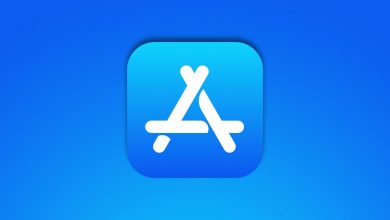By default, Facebook tracks what you do even when you’re not on Facebook, like the products you shop for, the political candidates you donate to, and the porn you watch, using tools like Facebook Pixel, a small piece of code deposited on millions of websites across the internet. The social network uses that information to target you with personalized ads—a business model that is now worth billions of dollars. But that model has also come under increased scrutiny as privacy advocates, lawmakers, and pundits continue to question why anyone should trust Facebook with their data. In the aftermath of the Cambridge Analytica scandal last year, Facebook promised that users would soon have more control over their information using a “Clear History” tool, which would delete people’s off-platform browsing records. More than a year later, the company finally announced Monday it’s rolling out the feature, now called “Off-Facebook Activity.” People in Ireland, South Korea, and Spain will have access to the long-anticipated tool first, and it will be rolled out in the coming months to all Facebook users. Off-Facebook Activity will give you a summary of the third-party websites and apps that share your visit history with Facebook, and will allow you to clear them. You can also choose not to allow Facebook to use your browsing history for personalized advertising in the future, including on Messenger and Instagram. Erin Egan, Facebook’s chief privacy officer, and David Baser, the director of product management, noted in a blog post that the new tool “could have some impact” on Facebook’s business, but that “giving people control over their data is more important.” But not complete control. Even if you turn off Facebook’s ability to use your browsing history for ads, Facebook will still collect that information, and it will still be connected to your account for up to two days. Buried in a Help Center post behind a drop-down menu, Facebook clarifies: “Your future off-Facebook activity will be disconnected within 48 hours from when it’s received. During this time it may be used for measurement purposes and to make improvements to our ads systems.” In an email, Jay Nancarrow, Facebook’s director of policy communications, said that Facebook will notify users of this 48-hour period when they access the“Manage Future Activity” portion of the tool in their settings. He also noted that the caveat was included in an engineering blog post Facebook published Monday explaining how Off-Facebook Activity was built. Even after 48 hours, the Off-Facebook Activity controls won’t actually delete your browsing data from Facebook’s servers. It merely decouples the information from your personal profile. Your data will still show up in aggregated contexts. “This way, we can do things like give advertisers reports on the effectiveness of their ad campaigns or give businesses aggregated site and analytics reports, such as how many women between the ages of 18 and 24 use their apps,” Nancarrow said. And Facebook needs the 48-hour window in order to compile this kind of information. In a blog post aimed at clients published in May, Facebook reassured advertisers it would “still be able to provide accurate measurement,” in order to help businesses grasp “the impact of their Facebook investment.” “Facebook is essentially saying, ‘We’re just going to remove the link between your unique Facebook account and this big stream of data, but we’re going to keep that big stream of data,’” said Aaron Rieke, the managing director of Upturn, a nonprofit research group that has studied Facebook’s advertising practices. Facebook says it’s choosing to decouple your data instead of deleting it not just for business reasons but also technical ones. In its technical blog post laying out how the new tool was built, Facebook’s engineers explained that the company stores user information across various scattered databases, rather than in one centralized location. Because deleting data across them all might not work reliably, Facebook chose instead to “disconnect it directly from a person’s account.” Facebook says it believes the tool is unprecedented, meaning there was no roadmap it could follow to build the feature. If a sizable portion of Facebook users disconnect their browsing data, that might hurt the company’s business, as Egan and Baser noted. It could make Facebook’s ads less effective, at least in the long run, and potentially lower their value. But for the new tool to actually affect Facebook’s bottom line, consumers will have to elect to use it in large numbers. The Pew Research Center found in a study published earlier this year that the vast majority of Facebook users in the US don’t know about the menu where they can change other preexisting privacy settings related to advertising. Facebook CEO Mark Zuckerberg admitted just as much when he testified before the Senate last year. “Some people use it. It’s not the majority of people on Facebook,” he said. The social network likely expects the same will be true for the new Off-Facebook Activity tool, too. “I think the practice of targeting people by their web behavior will remain a strong and viable way to do business,” Rieke said.
اتخذت شركة فيسبوك خطوة جديدة بخصوص “حماية” بيانات المستخدمين، بعد الضجة المثارة حولها في هذا الشأن، بإجراء تعديل يسمح للمستخدمين برؤية البيانات التي تشاركها مواقع الويب والتطبيقات الأخرى عنهم مع الشبكة الاجتماعية لتحسين الإعلانات المستهدفة. ويتتبع موقع الشركة تاريخ تصفحك لمواقع الويب خارج شبكتها من خلال تسجيل دخولك تلك المواقع عبر زر “تسجيل الدخول عبر فيسبوك”. وهذا النوع من نشاط المستخدم في تلك المواقع تسميه “نشاط خارج فيسبوك” (Off-Facebook activity). مثلاً إذا سجلت الدخول في موقع لبيع الملابس من خلال فيسبوك فإن هذا الموقع يشارك المعلومات عن نشاط المستخدم مع فيسبوك، ومع التعديل الجديد أصبح بإمكان المستخدمين الاطلاع على تاريخ نشاطهم “خارج فيسبوك”. وقال المديرون التنفيذيون لفيسبوك في منشور بالمدونة الخاصة بالشركة أمس “لقد بدأنا من خلال جعل النشاط خارج فيسبوك تدريجياً متاحاً للأشخاص في أيرلندا وكوريا الجنوبية وإسبانيا”، بحسب الجزيرة نت اليوم. وإذا قام المستخدم بمسح نشاطه خارج فيسبوك، فستقوم الأخيرة بإزالة معلومات تعريف المستخدم من البيانات التي تختار التطبيقات والمواقع الإلكترونية إرسالها. وتابعت “لا نعرف مواقع الويب التي قمت بزيارتها أو ماذا فعلت هناك، ولن نستخدم أياً من البيانات التي تقوم بقطع اتصالها لتوجيه الإعلانات إليك على فيسبوك أو إنستغرام أو ماسنجر”. وقالت فيسبوك أيضاً إنه يتوقع أن يكون لهذا الأمر بعض التأثير على أعمالها. فقد واجهت الشركة هجوماً وانتقادات من المشرعين والمنظمين بسبب ممارسات الخصوصية. ولكن موقع “بزفيد” المعني بشؤون التقنية ذكر أن إعلان فيسبوك لم يتضمن خاصية حذف المعلومات الخاصة بالمستخدمين، فالخاصية ستعمل على عدم ربط هوية المستخدم بالمعلومات الخاصة به فيصبح مجهولاً ولكن معلوماته ستظل مخزنة عند فيسبوك. فمثلاً إذا تابعت أحد المواقع ولا تريد أن تظهر هويتك ومعلوماتك في حال طلب الموقع من فيسبوك معلومات عن متابعيه، عندها سوف يشار إليك في قائمة المتابعين “كمستخدم مجهول” دون ظهور معلومات خاصة عنك، وهذه خطوة جيدة لحماية خصوصية المتابعين. ولكن يظل السؤال قائماً: لماذا الاحتفاظ بهذه المعلومات طالما لن يتم الانتفاع بها تجارياً من فيسبوك؟ وتواجه فيسبوك انتقادات وقضايا بسبب انتهاكات تتعلق بخصوصة المستخدمين، ما دفع لجنة التجارة الاتحادية الأمريكية، في 24 يوليو الماضي إلى فرض غرامة قياسية على الشركة بلغت 5 مليارات دولار أمريكي، في تسوية تلزم أكبر موقع للتواصل الاجتماعي في العالم بـ”وضع قيود جديدة وتعديل هيكلية الشركة”. وقال جو سيمونز رئيس اللجنة، في بيان له بعد القرار إنه “رغم الوعود المتكررة لمليارات من مستخدمي الشركة في العالم بأنها قادرة على السيطرة على الكشف عن معلوماتهم الشخصية لجهات أخرى، فقد قوضت فيسبوك خيارات المستهلكين




